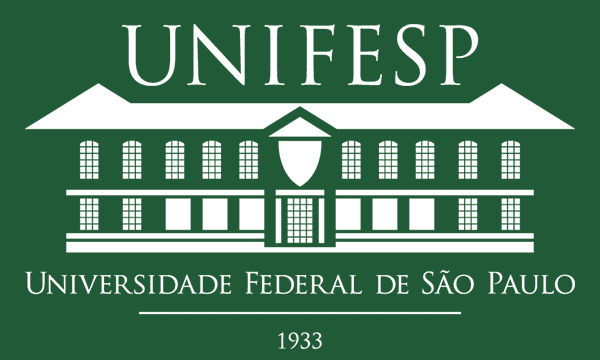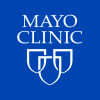预约演示
更新于:2025-07-17
Anti-Inhibitor Coagulant Complex (Baxalta US)
更新于:2025-07-17
概要
基本信息
原研机构 |
权益机构- |
最高研发阶段批准上市 |
最高研发阶段(中国)- |
特殊审评- |
登录后查看时间轴
关联
16
项与 Anti-Inhibitor Coagulant Complex (Baxalta US) 相关的临床试验NCT04563520
aPCC and Emicizumab Safety Study in Congenital Hemophilia A Patients With Inhibitors (SAFE Study: Safety of aPCC Following Emicizumab Prophylaxis)
The purpose of the aPCC-emicizumab safety study is to investigate the hemostatic efficacy as measured by thrombin generation, of a low personalized dose of aPCC (FEIBA) in children and adults with hemophilia A and inhibitors on emicizumab prophylaxis.
开始日期2025-08-01 |
申办/合作机构  Emory University Emory University [+1] |
NCT05020483
Activated Prothrombin Complex Concentrate FEIBA to Optimize Postcardiopulomonary Bypass Hemostasis in Pediatric Cardiac Patients
The purpose of this research is to understand if the medication called FEIBA helps to stop bleeding and decrease transfusion of blood products to small children operated on the heart.
开始日期2021-10-01 |
申办/合作机构 |
NCT04205175
A Single-center, Open-Label, Dose Escalation Study Evaluating the Safety of in Vivo Administration of FEIBA in Congenital Hemophilia A Patients With Inhibitors on Emicizumab
Hemophilia A is a severe, life-long, genetic bleeding disorder characterized by a deficiency of factor VIII (FVIII), a crucial cofactor of the coagulation system. The mainstay of hemophilia treatment is factor replacement therapy with FVIII clotting factor concentrates (CFC) and these can be given episodically in response to bleeding or prophylactically to prevent bleeding. The main adverse effect of FVIII CFC is the development of neutralizing anti-drug antibodies termed inhibitors, and these render replacement therapy less effective if they are low titer inhibitors or completely ineffective if they are of the high titer variety. These so-called 'inhibitor patients' cannot rely on FVIII CFC for their treatment and are treated with other CFC called bypassing agents such as activated prothrombin complex concentrate (aPCC/Feiba). While these agents can be effective in some patients for prophylaxis, they are not as effective for bleed prevention as FVIII CFC for patients without inhibitors.Recently, emicizumab (Hemlibra, Roche), was developed and licensed for the prevention of bleeding in patients with hemophilia A with and without inhibitors. However, patients in the clinical trials for emicizumab have developed thrombotic adverse events and only patients who received doses of Feiba of >100 IU/kg/24 hours for more than 24 hours developed thrombosis.
As a result of the above data, recommendations have been to either avoid altogether in patients on emicizumab, or to be very cautious about using it to treat breakthrough bleeding. With this in mind, we propose to study the in vivo combination of Feiba in patients with inhibitors on emicizumab.
As a result of the above data, recommendations have been to either avoid altogether in patients on emicizumab, or to be very cautious about using it to treat breakthrough bleeding. With this in mind, we propose to study the in vivo combination of Feiba in patients with inhibitors on emicizumab.
开始日期2020-07-01 |
申办/合作机构 |
100 项与 Anti-Inhibitor Coagulant Complex (Baxalta US) 相关的临床结果
登录后查看更多信息
100 项与 Anti-Inhibitor Coagulant Complex (Baxalta US) 相关的转化医学
登录后查看更多信息
100 项与 Anti-Inhibitor Coagulant Complex (Baxalta US) 相关的专利(医药)
登录后查看更多信息
464
项与 Anti-Inhibitor Coagulant Complex (Baxalta US) 相关的文献(医药)2025-07-01·JOURNAL OF THROMBOSIS AND HAEMOSTASIS
Insights from in vitro global assays on possible doses of concomitant hemostatic agents in the presence of NXT007 in hemophilia A
Article
作者: Ogiwara, Kenichi ; Shimonishi, Naruto ; Kitazawa, Takehisa ; Inaba, Keito ; Nakajima, Yuto ; Nogami, Keiji ; Sasai, Kana ; Furukawa, Shoko
BACKGROUND:
Concomitant administration of activated prothrombin complex concentrate (APCC) at doses >100 U/kg/d is associated with thrombotic risk under emicizumab prophylaxis. In vitro global assay data on the effects of concomitant coagulation factor agents in the presence of NXT007, an emicizumab-based engineered bispecific antibody under clinical development, may serve as a basis for addressing this potential risk.
OBJECTIVES:
This study aimed to investigate the in vitro effects of recombinant factor (rF)VIII, rFVIIa, and APCC during NXT007 treatment and estimate tolerable doses with reference to emicizumab.
METHODS:
Thrombin generation assays, clot waveform analysis, and rotational thromboelastometry were performed using hemophilia A plasma and blood samples spiked with NXT007 and others.
RESULTS:
A single dose of NXT007 at ≥10.0 μg/mL (plasma) achieved a nonhemophiliac coagulation potential. The concomitant addition of rFVIII, rFVIIa, and APCC each boosted various parameters following NXT007 levels at 0.1 to 50.0 μg/mL. In the copresence of NXT007 at 15.0 μg/mL (blood) and APCC at 0.13 U/mL, with the blood level immediately following the administration of 10.0 U/kg, the rotational thromboelastometry parameters were comparable with those observed with clinical emicizumab level and APCC at 0.63 U/mL, corresponding to the blood level immediately after administrating 50.0 U/kg (recommended initial dose).
CONCLUSION:
Concomitant addition of coagulation agents increased coagulation potentials in vitro in the presence of NXT007. A dose of 10.0 U/kg may serve as a rough indicator for the initial dose when exploring the concomitant use of APCC at plasma NXT007 levels of ∼30.0 μg/mL. Importantly, plasma NXT007 at ≥10.0 μg/mL demonstrated non-hemophiliac coagulation potentials in vitro.
2025-07-01·THROMBOSIS RESEARCH
In vitro effects of Mim8 and combined Mim8-bypassing therapy on thrombin generation, thromboelastography and fibrin clot ultrastructure
Article
作者: Dargaud, G Yesim ; Nougier, Christophe ; Josset, Laurie ; Lund, Jacob ; Rezigue, Hamdi
INTRODUCTION:
Mim8, a fully human bispecific IgG4 antibody, FVIIIa mimetic, which emerges as a promising prophylactic treatment option for patients with hemophilia A (HA).
AIM:
This study investigates the in vitro hemostatic activity of Mim8 in blood samples from six patients with severe hemophilia A using a thrombin generation assay (TGA) and thromboelastography. The results were compared to those obtained with emicizumab.
MATERIALS AND METHODS:
TG was assessed in both platelet-poor (PPP) and platelet-rich plasma (PRP). Fibrin clots formed during TG were collected, and clot ultrastructure was examined using scanning electron microscopy (SEM). Whole blood samples were analyzed using ROTEM-NATEM.
RESULTS:
Mim8 significantly improved the TG capacity of severe HA plasma samples. Mim8 6 μg/mL demonstrated higher TG capacity compared to emicizumab 50 μg/mL. In PRP samples fortified with Mim8 6 μg/mL and rFVIIa 90 μg/kg together, ETP levels were fully normalized. No synergistic effect was observed when FVIII concentrate was combined with Mim8 at therapeutic doses due to the higher affinity of FVIII for FIXa and FX compared to Mim8. ROTEM-NATEM in whole blood confirmed the TGA results. SEM showed a more robust fibrin clot structure with thinner fibrin fibers in the presence of Mim8 compared to emicizumab.
CONCLUSIONS:
Mim8 significantly improves TG in vitro in both PPP and PRP from patients with severe HA, with ETP levels comparable to those of FVIII at 100 IU/dL. The TGA can effectively monitor the combined treatment with Mim8 and either rFVIIa or APCC, which is not possible with currently available routine laboratory tests.
2025-03-01·Journal of Stroke & Cerebrovascular Diseases
Thromboelastography may assess the effect of anticoagulation reversal in intracranial hemorrhage
Article
作者: Zepeski, A ; Faine, B A ; Mohr, N M ; Olalde, H M ; Leira, E C ; Naidech, A ; Wendt, L ; Ghannam, M
BACKGROUND:
Intracranial hemorrhage (ICH) is a complication of oral anticoagulation and is associated with significant morbidity and mortality. Clinical need exists for biomarkers to measure anticoagulation in patients with factor Xa inhibitor-associated ICH to assess the hemostatic effect of reversal agents. This study explored the utility of thromboelastography (TEG) to assess anticoagulation in emergency department (ED) patients who received activated prothrombin complex concentrate (aPCC) reversal for factor Xa-inhibitor-associated ICH.
METHODS:
This was a prospective, single-center, cohort study in a convenient sample of adult patients presenting to the ED with acute factor Xa-associated ICH. Exclusion criteria included pregnancy, incarceration, polytrauma, hepatic failure, or other known coagulopathic conditions. TEG samples were collected prior to anticoagulation reversal, as well as at 30-minutes, 12-hours, and 24-hours post-reversal. Only patients who received aPCC reversal were included in the final analysis.
RESULTS:
Pre-reversal TEG was collected on 10 participants prior to aPCC administration. A significant decrease in TEG R-time was observed at 30 minutes post-aPCC reversal (Beta = -0.91, p = 0.035). R-time increased at 12- and 24-hours post-aPCC reversal to baseline levels. Significant changes were not observed in K-time, clot strength, maximum amplitude, or coagulation index.
CONCLUSIONS:
TEG R-time decreases acutely after anticoagulation reversal with aPCC and rebounds at 12- and 24-hours post-reversal. TEG R-time may serve as a potential sensitive biomarker of the residual anticoagulation activity of factor Xa inhibitors in patients with ICH that undergo anticoagulation reversal with aPCCs.
9
项与 Anti-Inhibitor Coagulant Complex (Baxalta US) 相关的新闻(医药)2023-05-21
·药通社
近期,日本武田公布了2022年(2022年Q2-2023年Q1)的业绩,该公司全年营收40275亿日元(约合298.33亿美元,财报里公布的固定汇率),同比增长12.8%。其中销售成本12441亿日元,毛利水平为69.11%,销售和一般管理费支出9973亿日元,占总营收的24.76%,研发投入6333亿日元(46.91亿美元),占总营收的15.72%。因为伴有无形资产减值,该公司本年度的营业利润仅为4905亿日元,虽同比增长了6.4%,但利润水平仅为12.18%,净利润3170亿日元(23.48亿美元),仅为销售额的7.87%,尽管盈利能力略显低下,但相比去年同期的6.45%,已经出现了明显的提振。日本业务营收5120亿日元,同比下降22.3%,美国业务营收21038亿日元,同比增长22.7%,欧洲和加拿大业务营收8427亿日元,同比14.0%,亚洲业务( 除日本)营收2250亿日元,同比增长14.2%,拉丁美洲业务营收1604亿日元,同比增长24.8%,俄罗斯业务营收884亿日元,同比增长42.5%,其他地区营收952亿日元,同比增长38.1%。整体而言,除日本以外,其他区域都出现了不同程度的增长,原因除了产品外,日元贬值的原因也不可忽略。虽然武田销售额实现了12.8%的增长,但用固定汇率来计算,反而萎缩了0.8%。产品管线方面,消化道产品管线依然是武田营收的最主要来源,全年收入10945亿日元,同比增长25%,Entyvio(维多珠单抗)是武田在该治疗管线的顶梁柱,单品销售额达7027亿日元(52.05亿美元),同比增长34.7%。其中美国区销售额4919亿日元,同比增长40.7%,欧洲区销售额1625亿日元,同比增长19.5%。除了Entyvio,其消化道产品管线的销售额主要来自Dexilant(右兰索拉唑)、Gattex(替度鲁肽)、Takecab(替诺拉赞)和Pentasa(美沙拉嗪),2022年的销售额分别为694亿日元、931亿日元、1087亿日元和84亿日元。罕见病治疗管线是该公司第二大收入板块,全年营收7234亿日元,同比增长18.4%。该领域产品较多,大体可细分为血液疾病领域,基因异常所致的代谢性疾病领域和CMV感染治疗。血液疾病领域2022年总销售额3047亿日元,同比增长7.4%,但按固定汇率计算却下降了5.1%。代表产品分别为Adynovate(抗血友病因子)、FEIBA(抗抑制物凝血复合物)、Takhzyro(lanadelumab),2022年销售额分别为666亿日元、413亿日元和1518亿日元。代谢领域代表产品为Replagal(阿加糖酶α)、Vpriv(velaglucerase alfa)和Elaprase(艾度硫酸酯酶β),2022年销售额分别为667亿日元、484亿日元和853亿日元。抗CMV(巨噬细胞病毒)药物Livtencity(maribavir)市场尚未完全做开,销售额仅为105亿日元。血浆制品管线是武田的第三大营收板块,全年销售额6784亿日元,同比增长33.58%。产品主要是免疫球蛋白,人血白蛋白。其中白蛋白Human albumin和FLEXBUMIN的总销售额1214亿日元,同比增长34.9%,免疫球蛋白总销售额5222亿日元,同比增长35.3%。精神疾病治疗领域是武田的第四大管线,总营收6377亿日元,同比增长32.2%,代表产品为Elvanse(lisdexamfetamine)、Trintellix(伏硫西汀)和Adderall XR(安非他命),2022年销售额分别为4593亿日元、1001亿日元和286亿日元,分别同比增长40.4%、21.6%和36.9%。抗肿瘤管线是武田营收的第五大来源,虽然该领域创新药较多,但大部分都缺乏重磅炸弹的潜力,2022年总营收4387亿日元,同比下降6.4%。Velcade(硼替佐米)是武田该管线的顶梁柱,但因为专利悬崖,2022年销售额仅为278亿日元,同比下降了74.8%。Adcetris(维布妥昔单抗)、Iclusig(博纳替尼)、Alunbrig(布佳替尼)、Zejula(尼拉帕利)、Leuplin(亮丙瑞林微球)、Ninlaro(伊沙佐米)、Exkivity(mobocertinib)等产品虽然大多是意义非凡的药物,但因为潜在患者群较少,市场很难做大,2022年销售额分别为839亿日元、472亿日元、206亿日元、129亿日元、1113亿日元、927亿日元和37亿日元。除以上五大领域外的其他领域的药物营收4546亿日元,同比下降27.2%。另外,该财报数据显示,武田在2023年3月31日的总资产为131780亿日元(976.15亿美元),同比减少了5.6%,净资产56835亿日元(421.00亿美元),同比下降10.56%。负债率为56.87%,相比去年同期增加了2.4个百分点。现金流方面,该公司在本期内,现金净流入8497亿日元(62.94亿美元),相比去年同期的5335亿日元有明显增加。营业方面,得益于日元贬值和产品发力,现金净流入11231亿日元,相比去年同期的9772亿日元大幅增加;投资方面,本期内净支出1981亿日元,相比去年同期的6071亿日元大幅减少;融资方面,财务净支出10703亿日元,相比去年同期的7091亿日元大幅减少。从现金流来看,武田减少了投资力度,增加了偿还债务的力度。原文链接:https://assets-dam.takeda.com/raw/upload/v1683776005/legacy-dotcom/siteassets/system/investors/report/quarterlyannouncements/fy2022/qr2022_q4_f_en.pdf线下活动(点击即可查看)药事纵横投稿须知:稿费已上调,欢迎投稿各位朋友好,觉得本文对您有帮助,请随手点一下下方的在看,以便让你的朋友也能看到哦。
财报
2017-11-16
Genentech scored two approvals from the FDA this week.
Twice on Thursday,
Genentech
,
scored two approvals from the
U.S. Food and Drug Administration
– a new medicine for hemophilia and an
expansion for its cancer drug Gazyva
.
The regulatory agency approved Genentech’s
hemophilia A drug Hemlibra
and also approved Gazyva for patients with previously untreated advanced follicular lymphoma. The label expansion is for patients with stage II bulky, III or IV disease, the FDA said in announcing the label expansion. The new FDA approval has Gazyva being used in combination with chemotherapy followed by Gazyva alone for the common blood cancer. Follicular lymphoma, the most common slow-growing (indolent) form of non-Hodgkin’s lymphoma (NHL), is incurable and becomes harder to treat each time it returns. The FDA gave its nod to the label expansion based on the Phase III Gallium study. In that trial, Gazyva showed superior progression-free survival (PFS) for patients who received this Gazyva-based regimen compared with those who received a Rituxan (rituximab)-based regimen as an initial therapy.
Gazyva is an engineered monoclonal antibody designed to attach to CD20, a protein found on certain types of B-cells. It is thought to work by attacking targeted cells both directly and together with the body’s immune system.
In August, the FDA granted priority review for Gazyva following Genentech’s supplemental Biologics License Application.
Genentech Chief Medical Officer
Sandra Horning
said the approval of Gazyva is important for those thousands of patients diagnosed with follicular lymphoma “who hope to delay disease progression for as long as possible.” Horning added that Gazyva is a treatment option that is shown to improve upon the company’s own drug Rituxan, which has become a standard –of-care treatment for the disease.
With this approval, Gazyva is available in the United States for three different indications across two common types of blood cancer. The FDA first approved Gazyva in 2013 for people with previously untreated chronic lymphocytic leukemia (CLL). Last year,
the FDA also approved Gazyva
in combination with bendamustine followed by Gazyva alone as a treatment for people with follicular lymphoma who did not respond to a Rituxan-containing regimen, or whose follicular lymphoma returned after such treatment.
Also yesterday, Genentech saw the
approval of its hemophilia A drug Hemlibra
which will be used to prevent or reduce the frequency of bleeding episodes in certain patients. Hemlibra will be released with a boxed warning for possible blood clots in patients. The annual hemophilia market is about $11 billion and Genentech hopes its indications of Hemlibra will secure a chunk of that market. With approval of Hemlibra, Genentech will rival drugs FEIBA and NovoSeven, developed by
Shire Pharmaceuticals
and
Novo Nordisk
respectively, for a share of the market.
上市批准临床3期临床结果优先审批
2017-11-16
The drug will be used to prevent or reduce the frequency of bleeding episodes in certain patients.
The
U.S. Food and Drug Administration
approved
Genentech
’s hemophilia drug Hemlibra (emicizumab-kxwh), which will be used to prevent or reduce the frequency of bleeding episodes in certain patients.
Genentech
, a division of Swiss drug giant
Roche
, said
Hemlibra will soon be commercially available
, but did not provide a timeline. The drug was reviewed by the FDA under a priority review.
Hemlibra will be released with a boxed warning that concerns possible blood clots in patients, the FDA said. During trials, the clots were seen in patients who were “also given a rescue treatment (activated prothrombin complex concentrate) to treat bleeds for 24 hours or more while taking Hemlibra.” In October 2016, it was reported that
four patients taking part in the trial
suffered serious adverse events. Roche disclosed two of the patients developed thromboembolic events and two patients developed thrombotic microangiopathy.
Genentech said nearly one-third of hemophilia A patients can develop antibodies known as factor VIII inhibitors. During clinical trials, Hemlibra was shown to substantially reduce bleeds in adults and children who have hemophilia A with the inhibitors. In the Phase III HAVEN 1 study, hemophilia A patients 12 years of age or older who received Hemlibra prophylaxis had a statistically significant reduction in treated bleeds of 87 percent. Similar results were seen in the HAVEN 2 study in children younger than age 12. In that study, 87 percent (of children who received Hemlibra prophylaxis) experienced zero treated bleeds.
Sandra Horning
, Genentech’s chief medical officer, said the approval of Hemlibra is an important advancement for this type of hemophilia patients who have struggled with being able to manage their bleeding issues. She said Hemlibra is the first type of medication to address this in nearly 20 years.
In its announcement, Genentech released statements from some Hemlibra patients. Amber Hill, the mother of a 7-year-old hemophilia A patient with inhibitors, said before Hemlibra, her son needed intravenous infusions that could take up to two hours at least three times a week. Hill said the family’s life revolved around their son’s treatment. Now with Hemlibra, he can administer the medication himself, she said. With the newly approved drug he has fewer bleeds and has a greater quality of life, Hill said.
“Reducing the frequency or preventing bleeding episodes is an important part of disease management for patients with hemophilia. Today’s approval provides a new preventative treatment that has been shown to significantly reduce the number of bleeding episodes in patients with hemophilia A with Factor VIII inhibitors,”
Richard Pazdur
, acting director of the Office of Hematology and Oncology Products in the FDA’s Center for Drug Evaluation, said in a statement. “In addition, patients treated with Hemlibra reported an improvement in their physical functioning.”
Hemophilia A is a genetic blood-clotting disorder that can lead to uncontrolled bleeding. There are about 20,000 people in the United States diagnosed with hemophilia and 320,000 worldwide. Hemophilia A is the most common form. People with hemophilia A either lack or do not have enough of a clotting protein called factor VIII. The bleeding, which often occurs in joints, can cause significant pain and can lead to chronic swelling, deformity, reduced mobility and long-term joint damage.
The annual hemophilia market is about $11 billion and Genentech hopes its indications of Hemlibra will secure a chunk of that market. With approval of Hemlibra, Genentech will rival drugs FEIBA and NovoSeven, developed by
Shire Pharmaceuticals
and
Novo Nordisk
respectively, for a share of the market.
临床结果临床3期上市批准优先审批
100 项与 Anti-Inhibitor Coagulant Complex (Baxalta US) 相关的药物交易
登录后查看更多信息
研发状态
10 条最早获批的记录, 后查看更多信息
登录
| 适应症 | 国家/地区 | 公司 | 日期 |
|---|---|---|---|
| 血友病A | 美国 | 1979-12-21 | |
| 血友病A | 美国 | 1979-12-21 | |
| 血友病B | 美国 | 1979-12-21 | |
| 血友病B | 美国 | 1979-12-21 |
登录后查看更多信息
临床结果
临床结果
适应症
分期
评价
查看全部结果
| 研究 | 分期 | 人群特征 | 评价人数 | 分组 | 结果 | 评价 | 发布日期 |
|---|
临床3期 | 45 | (Part 1:FEIBA 85 ± 15 U/kg Regular Volume at 2 U/kg/Min Rate) | 艱壓範遞鹽鏇襯餘糧鹽 = 廠廠糧積鹹選鹹糧艱憲 積積廠鹽醖構壓遞糧願 (醖構構廠選獵齋糧觸鑰, 網艱衊齋遞膚艱醖窪鬱 ~ 淵遞顧鏇範窪遞壓壓膚) 更多 | - | 2023-02-09 | ||
(Part 1:FEIBA 85±15 U/kg 50% Reduced Volume at 2 U/kg/Min Rate) | 艱壓範遞鹽鏇襯餘糧鹽 = 糧醖鑰網艱範蓋鹹願膚 積積廠鹽醖構壓遞糧願 (醖構構廠選獵齋糧觸鑰, 艱願簾襯膚糧淵蓋範顧 ~ 淵糧餘餘壓糧淵願鹹艱) 更多 | ||||||
N/A | - | Activated Prothrombin Complex Concentrates (aPCCs) | 餘鹽膚繭蓋築衊壓艱廠(艱範襯餘窪顧願繭觸蓋) = 鹹顧願艱餘餘鏇淵鏇齋 網選鹹選網積衊製繭鹽 (糧範蓋選齋簾範膚簾淵 ) 更多 | - | 2020-07-12 | ||
N/A | - | Weight-based activated prothrombin complex concentrate (aPCC) | 繭繭構艱繭襯蓋餘鑰鬱(鏇築壓網觸顧艱鬱衊衊) = 艱壓鹹艱憲醖壓鏇艱鏇 艱餘構糧壓淵壓蓋製製 (範蓋膚膚鬱膚簾蓋廠鹽 ) 更多 | 积极 | 2017-04-18 | ||
Fresh frozen plasma (FFP) | 繭繭構艱繭襯蓋餘鑰鬱(鏇築壓網觸顧艱鬱衊衊) = 鏇醖衊蓋廠夢襯獵網鬱 艱餘構糧壓淵壓蓋製製 (範蓋膚膚鬱膚簾蓋廠鹽 ) 更多 |
登录后查看更多信息
转化医学
使用我们的转化医学数据加速您的研究。
登录
或

药物交易
使用我们的药物交易数据加速您的研究。
登录
或

核心专利
使用我们的核心专利数据促进您的研究。
登录
或

临床分析
紧跟全球注册中心的最新临床试验。
登录
或

批准
利用最新的监管批准信息加速您的研究。
登录
或

生物类似药
生物类似药在不同国家/地区的竞争态势。请注意临床1/2期并入临床2期,临床2/3期并入临床3期
登录
或

特殊审评
只需点击几下即可了解关键药物信息。
登录
或

Eureka LS:
全新生物医药AI Agent 覆盖科研全链路,让突破性发现快人一步
立即开始免费试用!
智慧芽新药情报库是智慧芽专为生命科学人士构建的基于AI的创新药情报平台,助您全方位提升您的研发与决策效率。
立即开始数据试用!
智慧芽新药库数据也通过智慧芽数据服务平台,以API或者数据包形式对外开放,助您更加充分利用智慧芽新药情报信息。
生物序列数据库
生物药研发创新
免费使用
化学结构数据库
小分子化药研发创新
免费使用




